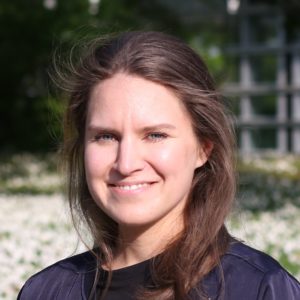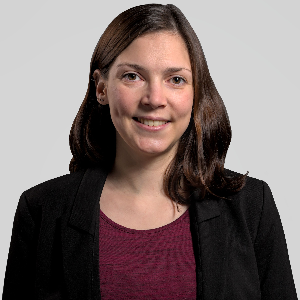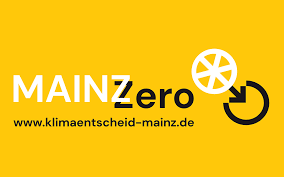 Isabell Zipperle
Isabell Zipperle
Coordination
It depends on all of us. Private consumption accounts for a significant proportion of our annual CO2 emissions. As a behavioral economist, one of the questions I deal with is how environmental behavior develops and how it can be influenced. I also want to contribute to this with my work at Scientists for Future. Because one thing is clear: we can only stop climate change if we work together.
Department: Economics (JGU Mainz)
Specialization: Environmental behavior
 Dr. Moritz Mann
Dr. Moritz Mann
Financial Manager, Deputy Coordinator
The political measures taken so far to avert the climate crisis are far from sufficient and the government’s future climate policy goals are set too low. I think that experts in particular should be more visible to the public and provide information in order to support the FFF movement and motivate politicians and society to take action.
Department: Chemistry (JGU Mainz)
Specialization: Chemical analysis of atmospheric aerosol particles and trace gases/ electrosynthesis
 Roland Jan-Reiner Bednarz
Roland Jan-Reiner Bednarz
Coordination
The climate crisis is life-threatening! Despite this, politicians are still mostly listening to the advice of interest-driven lobbyists instead of scientific findings. That’s why I’m actively involved in Scientists for Future and in my research on organic electrosynthesis to develop, evaluate and present solutions together as a team. I hope that we can show people perspectives and give them hope. Get loud with us!
Department: Chemistry (JGU Mainz)
Specialization: Electrosynthesis
 Werner Braun
Werner Braun
Transport transition (e.g. VHS lecture, evaluation of election programs)
As a graduate mathematician, I am interested in scientific topics and currently particularly in details about the climate crisis.
 Dr. Johanna Ariane Kranz
Dr. Johanna Ariane Kranz
We still have the choice to work together to implement solutions to the climate crisis, protect the climate and adapt to the consequences. We have the chance to shape a more sustainable and fairer future. As an educational researcher, it is very important to me to provide information about these opportunities, but also to help shape effective measures for a climate of change.
Employer: Rhineland-Palatinate Competence Center for Climate Change Impacts
Specialization: Climate education, science and climate communication
 Dr. Anselm Esser
Dr. Anselm Esser
Website
My children will not even be 80 years old in 2100. The scenarios predicted for this time are terrifying. That’s why we must manage to avert the worst consequences of the climate catastrophe. There is no second chance.
Department: Nuclear Physics (JGU Mainz)
Specialization: Electron scattering
 Timo Graffe
Timo Graffe
Zukunftsmodul, Project coordination
The climate crisis threatens our human existence. The good news is that it is not too late and each of us has the opportunity to contribute to the transformation of society. We live in such a privileged world that everyone can start right now! An education system that empowers people to become change agents plays a key role in this and can have a major impact as a social tipping point. With the future module, I am trying to make a contribution to this and thus turn our university into a real laboratory for a sustainable future. Such a transformation can only take place cooperatively, which is why working in groups such as Scientists for Future is extremely important.
Department: Institute of Physics (JGU Mainz)
Specialization: Physics didactics
Research details: Education for Sustainable Development, Climate Literacy
 Dipl.-Ing. Martin Hahn
Dipl.-Ing. Martin Hahn
Expansion of solar power
When I looked at the development curves of our planet’s CO2 content in 2019 and realized that a gigantic control loop is on its way to disaster, I had to take action. There is absolutely no more time to lose, but most people still don’t get it, which shocks me deeply. We should have strengthened renewable energies many times over a long time ago, now we need far more speed …
Employer: DB Systel GmbH
Specialization: Senior Data Engineer (Renewable Energy)
 Leonie Jungen
Leonie Jungen
During my participation in an international, interdisciplinary project on the “Year Without a Summer”, working with students and researchers from other scientific fields made me realize how drastic the effects of climate catastrophes on society as a whole have already been in the past and how urgently we need to act now – together. As a literary scholar, I therefore see it as my duty to bring the climate debate more into the literary and cultural scene.
Department: English and Linguistics (JGU Mainz)
Specialization: Scottish Literature and Culture
Research details: National identity, narratology, gender studies
 Benjamin D. Kraff
Benjamin D. Kraff
Urban development working group Mainz
The scientific need to slow down climate change has been known for decades. Nevertheless, policy-makers are largely focused on short-term goals, which exacerbates the need for long-term action. I am involved with Scientists4Future to create a bridge between scientific facts and societal needs and to promote exchange for a rapid socio-technical transformation that takes all interests into account. Social justice must be ensured not only between current population groups, but also between groups of different generations.
Department: Spatial and Infrastructure Planning (TU Darmstadt)
Specialization: Sustainable urban development
Research details: In my research, I deal with concepts for the urban transformation of the mobility sector. The focus here is on the strategic combination of environmental policy instruments that take social and technical aspects into account and thus enable a mobility transition that is as conflict-free as possible.
 Dr. Frank Schmidt
Dr. Frank Schmidt
Website
The problems of the climate crisis have been known for decades and yet large sections of the population and politicians are not acting decisively enough. I often have the feeling that many people are not even aware of what is at stake and the climate crisis is instead perceived as an abstract danger in the distant future, even though you can see clear effects such as tree death with your own eyes on a walk in the forest. As a scientist, I know that we can’t negotiate with physics and that’s why I want to inform people and encourage change.
Department: Institute of Physics (JGU Mainz)
 Jost Malczewski
Jost Malczewski
Many current discussions are based on opinions, perceived facts and heated debates. But if we want to effectively tackle climate change, our actions need to be soberly supported by sound climate science. By co-organizing lectures, discussions and other actions, I want to steer the public discourse in a more objective, effective direction.
Department: Business Chemistry (HS Fresenius Idstein)
 Dr. Franziska Teubler
Dr. Franziska Teubler
I have been active with the Scientists since August 2019, because even in 2019 I was still being asked whether climate change is really real. I therefore see one of the main tasks of our work as educating the public in order to increase public awareness of climate change and, in particular, acceptance of measures.
Department: Atmospheric Physics (JGU Mainz)
Specialization: Atmospheric Dynamics
Research details: I am particularly focused on the dynamics of Rossby waves and blocking weather patterns. These are waves in the upper troposphere – at aircraft altitude – that organize our weather in the mid-latitudes.
 Prof. Sebastian Seiffert
Prof. Sebastian Seiffert
YouTube Channel
The climate emergency is based on physical-chemical natural principles that are non-negotiable. Its anthropogenic causes, however, are economic, social and political mechanisms that can be shaped. I see Scientists for Future at the interface between the two. As a physical chemist, I can’t help but get involved there.
Department: Chemistry (JGU Mainz)
Specialization: Physical-Macromolecular Chemistry, Polymer Materials for Climate Adaptation
 Vivien Voigt
Vivien Voigt
Participation in the climate pub quiz
We live in a time when it is more convenient and often cheaper to buy something new instead of repairing the old. As an economist, this should make me happy, after all it boosts our economic systems, but instead my alarm bells are ringing. Faster and faster, further and further, better and better, newer and newer, and above all more and more and more at all times and immediately. But where do we get our Planet B from if Planet A can no longer meet these consumer demands? I am firmly convinced that the more we need in order to preserve a home for future generations is something completely different: more cohesion, more commitment, more cooperation, more education and more constructive criticism, because we can only change course if we work hand in hand.
Department: Economics (JGU Mainz)
 Apl. Prof. Doris Vollmer
Apl. Prof. Doris Vollmer
Although I am a physicist, it was my son who first made me aware of the consequences of the increasing CO2 levels in the atmosphere for life on earth. The survival of millions/billions of people is at stake. That’s why it’s important to me to inform people. As a physicist, I am also aware that nature is not negotiating with us. We must and can act! Let’s seize the opportunity.
Department: Physics of Interfaces (MPI for Polymer Research)
Specialization: Coatings
 Niklas Litzenberger
Niklas Litzenberger
Protocol
One year after the Paris climate agreement, I was so disappointed with the government that I couldn’t help but get involved in climate protection. If they don’t take care of it, then we’ll do it ourselves!
Department: Institute of Physics (JGU Mainz)
Specialization: Physics didactics
Research details: Development of a new research method for measuring dynamic interactions in physics lessons
 Cordula Markert
Cordula Markert
The current civilization, culture and science of mankind could only develop within the stable climatic conditions of the last 10,000 years. The climate crisis therefore threatens human civilization as we know it. The current path threatens droughts, floods, more extreme weather in general and, as a result, crop failures, resource wars and refugee movements on an unprecedented scale. Virtually every other challenge facing human society, from social justice to disease control, will be more difficult to solve the worse the climate catastrophe gets.
The good news is that the science behind the climate crisis is well understood. Technologies and measures that can reduce society’s CO2 emissions and thus save us from this future are known. What is needed is a rethink in broad sections of society and a decisive shift in policy. I hope that the commitment of scientists at S4F can make a decisive contribution to making society aware of the interrelationships and urgency of the climate catastrophe and to pointing out realistic, concrete paths towards a climate-friendly future.
 Dr. med. habil. Detlev Jung
Dr. med. habil. Detlev Jung
The crises to be expected as a result of climate change will not so much affect today’s decision-makers as future generations (including my children and grandchildren) and are likely to have a massive impact. However, the necessary decisions to minimize these effects must be taken now and the necessary measures must be introduced now. In addition to the original toxicological and immunological issues, my scientific work has always focused on the psychological constitution of human beings and the question of when and under what circumstances they are prepared to take responsibility. This question is just as relevant in the field of climate policy as it is in the field of work. The fact that and why the assumption of responsibility has been completely inadequate at all levels for decades, despite recognition of the necessity, must be analyzed and taken into account in further political action.
Department: Institute for Occupational, Social and Environmental Medicine (retired)
 Apl. Prof. Nadja Hellmann
Apl. Prof. Nadja Hellmann
It is a task for society as a whole to minimize the climatic changes we are facing. To achieve this, the political will of decision-makers and the acceptance of citizens for the resulting consequences must be strengthened. Scientists can contribute to this by preparing and disseminating information and by repeatedly pointing out the need for action. That is why I am involved with Scientists for Future.
Department: Chemistry (JGU Mainz)












